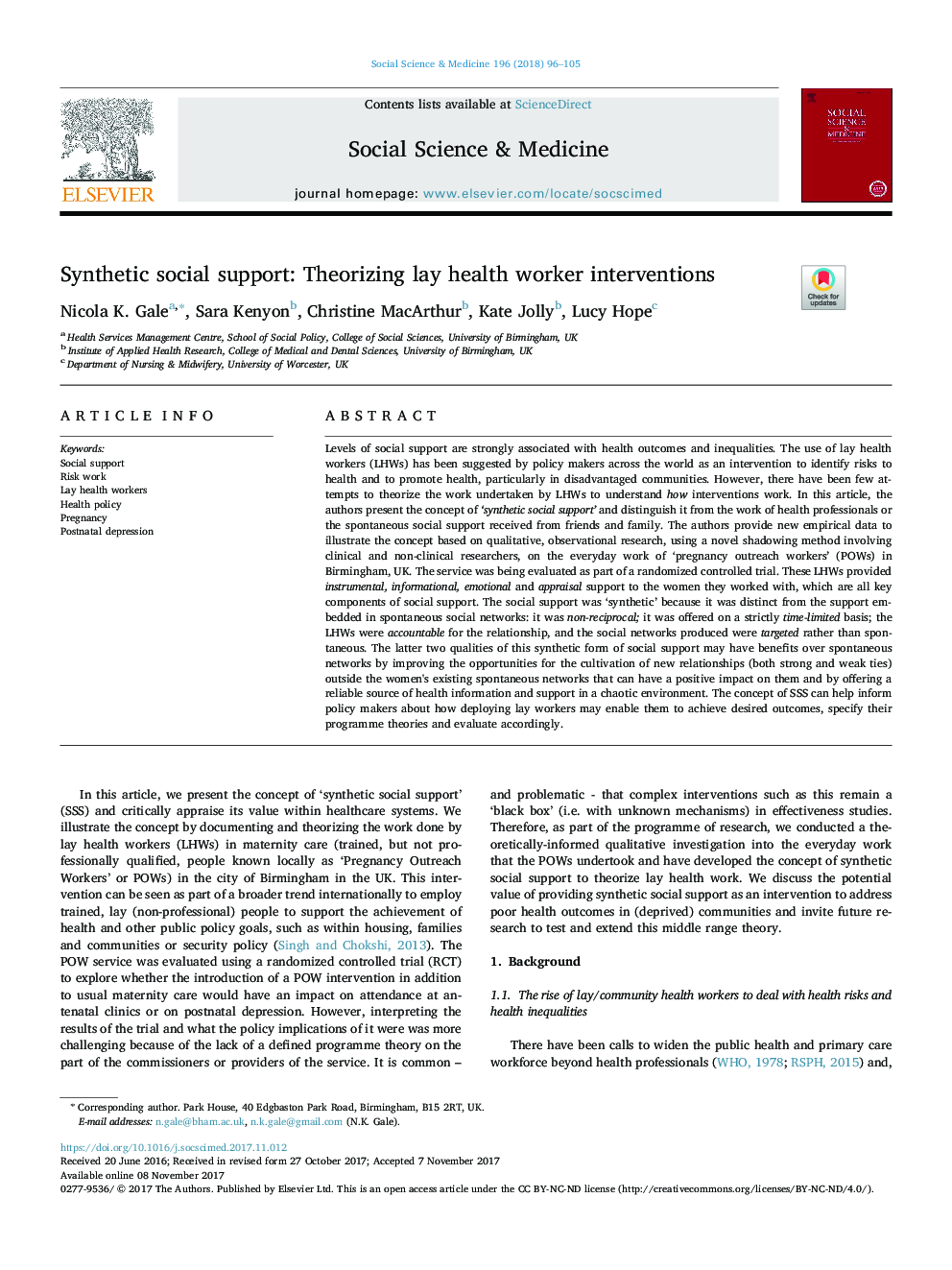| Article ID | Journal | Published Year | Pages | File Type |
|---|---|---|---|---|
| 7328793 | Social Science & Medicine | 2018 | 10 Pages |
Abstract
Levels of social support are strongly associated with health outcomes and inequalities. The use of lay health workers (LHWs) has been suggested by policy makers across the world as an intervention to identify risks to health and to promote health, particularly in disadvantaged communities. However, there have been few attempts to theorize the work undertaken by LHWs to understand how interventions work. In this article, the authors present the concept of 'synthetic socialsupport' and distinguish it from the work of health professionals or the spontaneous social support received from friends and family. The authors provide new empirical data to illustrate the concept based on qualitative, observational research, using a novel shadowing method involving clinical and non-clinical researchers, on the everyday work of 'pregnancy outreach workers' (POWs) in Birmingham, UK. The service was being evaluated as part of a randomized controlled trial. These LHWs provided instrumental, informational, emotional and appraisal support to the women they worked with, which are all key components of social support. The social support was 'synthetic' because it was distinct from the support embedded in spontaneous social networks: it was non-reciprocal; it was offered on a strictly time-limited basis; the LHWs were accountable for the relationship, and the social networks produced were targeted rather than spontaneous. The latter two qualities of this synthetic form of social support may have benefits over spontaneous networks by improving the opportunities for the cultivation of new relationships (both strong and weak ties) outside the women's existing spontaneous networks that can have a positive impact on them and by offering a reliable source of health information and support in a chaotic environment. The concept of SSS can help inform policy makers about how deploying lay workers may enable them to achieve desired outcomes, specify their programme theories and evaluate accordingly.
Related Topics
Health Sciences
Medicine and Dentistry
Public Health and Health Policy
Authors
Nicola K. Gale, Sara Kenyon, Christine MacArthur, Kate Jolly, Lucy Hope,
